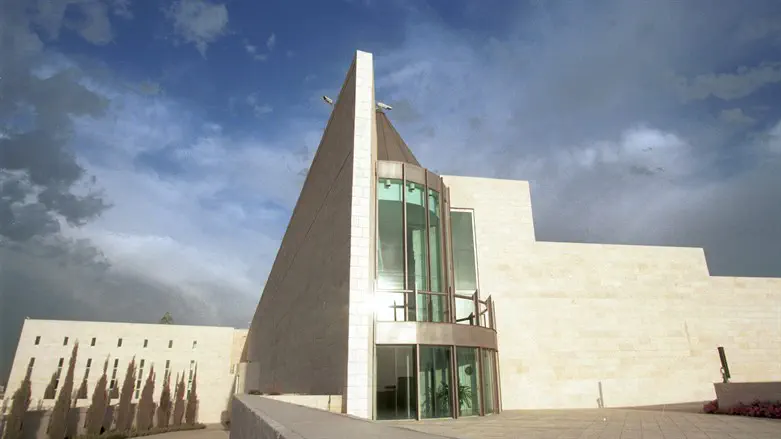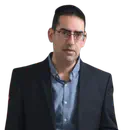
Avi Nachmani is the spokesman for the World Federation of Moroccan Jewry
Last week was Tisha B'Av, the most difficult day of the year for the Jewish people, when the Temples were destroyed and the people exiled from the land. One of the stories of the destruction associated with Tisha B'av is the well-known story of Kamtza and Bar Kamtza on the eve of the destruction of the Second Temple.
The following is a summary of the event: The Gemara (Gittin:1a) tells us about one of the rich men of Jerusalem who hosted a great feast to which his servant mistakenly invited Bar Kamtza, the rich man's enemy, instead of his fried Kamtza. When the rich man saw Bar Kamtza, who he hated, sitting at his event, he was furious, approached him and asked him to leave. Bar Kamtza, who was embarrassed, tried to convince the host to allow him to stay. He said that he would pay for the meal and later also for the cost of the main event so as not to be humiliated in front of everyone. The host would not relent and when Bar Kamtza saw that among the guests were distinguished Sages who did not prevent his expulsion, he decided to take revenge and denounce the Jews to the Roman emperor, telling him the Jews were rebelling against Rome.
To prove this, Bar Kamtza suggested that the emperor send a sacrifical offering to the Temple to see if the Jews sacrifice his offering or not. If they do sacrifice it - then they are not rebelling against the kingdom and if they do not sacrifice 7it- that is a sign of rebellion against Rome. On the way to Jerusalem, Bar Kamtza mutilated the offering so that it would not be acceptable for sacrifice according to Jewish law, knowing that the priests would not offer it and thus be considered rebels against the Roman Empire.
Here the legal system of that time, entered into a whirlwind, facing a big dilemma. The Sages realized that they had fallen into Bar Kamtza's trap and debated whether to offer the invalid sacrifice for the sake of peaceful relations with Rome or to kill Bar Kamtza in order to prevent this whistleblower telling the emperor that they did not offer his sacrifice.
One of the Sages, Rabbi Zacharias ben Avkulos, opposed both options, and in the absence of a unanimous decision by the Sages, the Jews refrained from offering the invalid sacrifice, and this led to the Rome's destruction of the Temple. Later, the Gemara cites a Sage's harsh opinion of the incident: "Rabbi Yochanan said: The 'humility' of Rabbi Zechariah ben Avkules destroyed our [national] house, burned our Temple and exiled us from our country."
The accusing finger of the Gemara is pointed at Rabbi Zechariah ben Avkules. Why did he refrain from deciding? Why was he afraid to make a decision? Rabbi Zachariah ben Avkulos is seen as an unbending man of principle who is not willing to deviate a millimeter from halakha, the dry law, even though one is allowed to in certain extenuating circumstances (and in fact, that deviation is the halakha). He did not understand the magnitude of the hour and the responsibility that rested on his shoulders at that moment. It was the unyielding purity and overrighteousness he practiced that led to the destruction of the Temple.
How difficult it is to read this saying of the Gemara. If only he had agreed with the Sages and offered the imperfect sacrifice, as the order of the hour, we might be in a different place today.
Our legal system, both civilian and military, can and should learn the lesson and conclusions from Rabbi Zachariah's over-righteousness. The overrighteousness and ivory tower purity of the civil justice system, and now also the military echelons, break records every day.
Every day we wake up to a new story about unbelievably harmful judicial decisions that are made in the Jewish state, especially unfathomable after the seventh of October. Every day we hear of another decision of the IDF legal system that leaves us speechless, that does not take into account what Israel is facing outside the hallowed halls of the court.
The case of the detention of the reserve soldiers in Sde Teiman is a small example of this. Reservists from the seventh to October volunteered and were attached to the Sde Teiman base to guard barbaric terrorists who had murdered, raped and massacred innocent Jews. And who is the military prosecutor investigating? Our heroic soldiers who were give such a difficult job and whose actions enable them to do it.
Think for a moment, who among us is capable of guarding monsters? Think about your child forced to perform such tasks and deal with human monsters every day and in the end find himself investigated by the military prosecutor's office because of terrorist lies. Because he reacted when a terrorist insulted soldiers and violently resisted orders. Attorney Ephraim Demari, who represents 4 soldiers in the Sde Teiman case, said this week on Channel 14 that the prosecutor's office was simply trying to please the world, another example of the Jews once again trying to be accepted. This is the story.
To prevent any doubts, it should be emphasized that if there were indeed cases that deserve to be investigated, of course they should be investigated and not plastered over. But there should be a quiet and private investigation without television cameras. Open the leading news broadcasts in the world and see the media coverage about this and how these arrests look in the eyes of the world. I see an upside down world.
Rabbi Zachariah ben Avkulas became a symbol of excessive and zealous super purity and overrighteousness which eventually led to the destruction of the Jewish homeland and the Temple. The judicial system should learn not to try to please the world and not to be afraid to make decisions first and foremost for the benefit of our soldiers, for the benefit of the people of Israel. This is not an ordinary period. It is time for the justice system to rise to the occasion and prevent injustice. It bears responsibility for preventing the internal rift within us from worsening. Nobody here wants another Jewish homeland destroyed.
